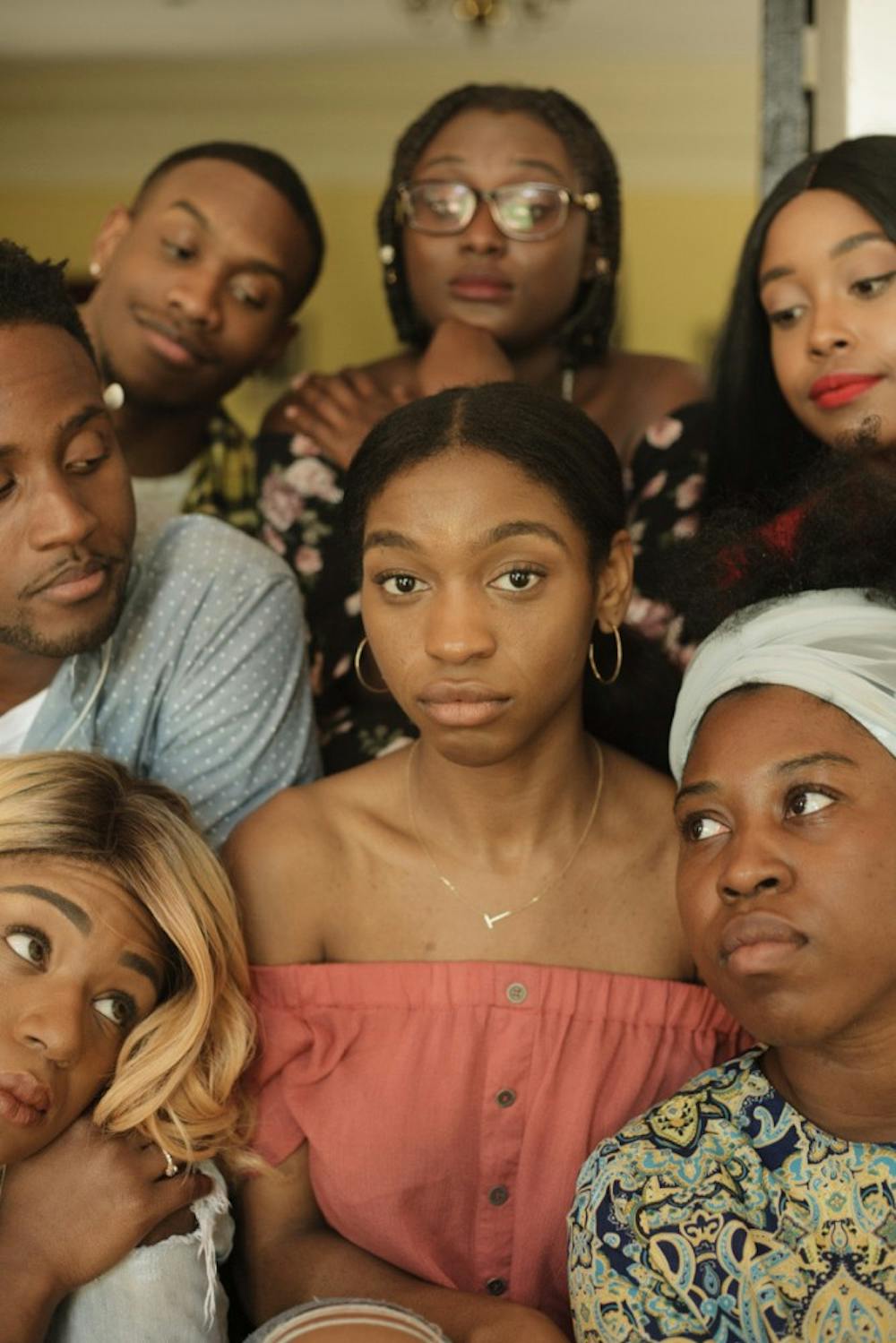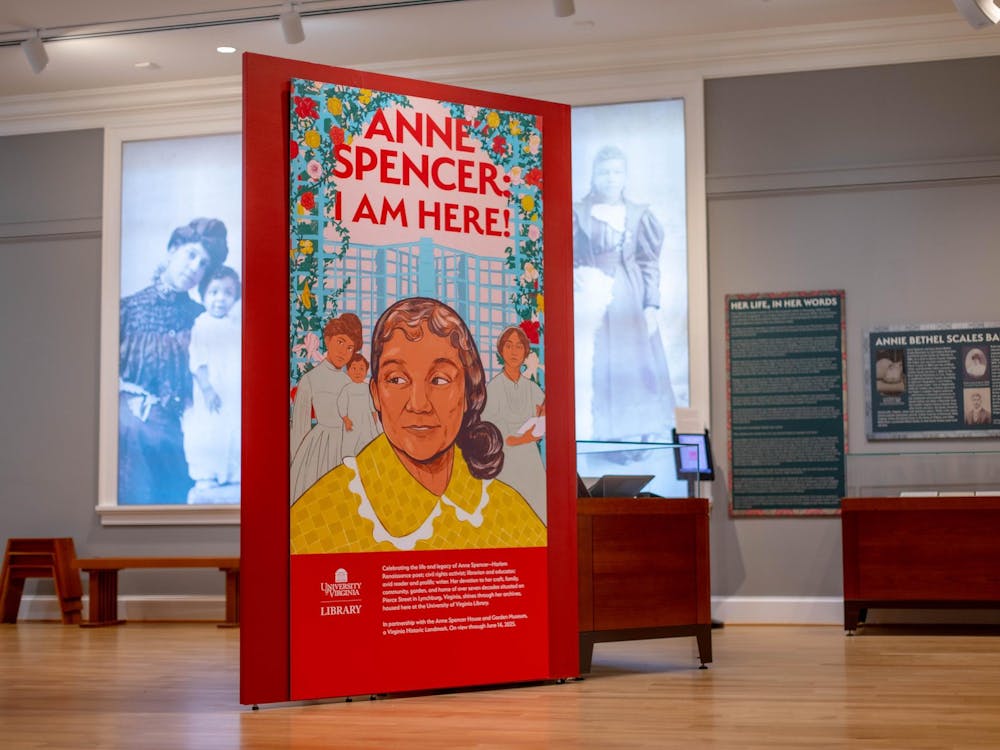“What makes up a black girl?”
The question is posed by a disembodied voice during the opening moments of “i. double consciousness,” the first episode of the new web series “Black Enough.” As the voice continues mulling over the question, hazy, indistinct images of black bodies move and stretch across the screen. This voice and several others insert themselves into the narrative of the episode at different points, in seeming response to the initial question. Late in the episode, a voice says, “I once heard that black girls were concocted by God.” It’s important to note, however, that a consensus among the voices is never reached, a tidy definition never found.
Searching for the identity of a black girl — and more broadly, the identities of young black people — is the task taken up by “Black Enough,” which gave viewers a preview of what to expect by screening the initial three episodes at Vinegar Hill Theatre last Saturday. These episodes — “i. double consciousness,” “ii. #BlackGirlMagicPotion” and “iii. touissant” — were followed by a talkback with members of the cast and crew, including 2018 University graduate Micah Ariel Watson, the series’ writer, director and executive producer.
“Black Enough” follows the experiences of Amaya (Tiffany Gordon), a black freshman trying to address the complexities of her identity while being pulled in different directions by her peers — several of whom are played by past or current University students. The explicit struggle of Amaya’s character is the question of her character itself, as she doubts time and again whether she’s “black enough” to meet the expectations of others.
As Amaya questions her identity, the series works to shape and define itself, testing and then breaking through boundaries of experimentation. The stylized montage of dialogue and visuals which starts “i. double consciousness” and is carried through the next two episodes is far from the only cinematographic risk Watson takes — the preview, though hardly longer than half an hour, proved formally inventive and daring.
Watson occasionally utilizes a split screen to impressive effect. The story was also interrupted by montages tangential to the main narrative, like when Amaya practices saying “black” words and phrases in the mirror or when BrownSkinnedBarbie_72 (Brandi Jaray Mcleain) appears onscreen to provide beauty tips in the format of YouTube videos. These narrative tricks and styles, aside from creating a thematically relevant kaleidoscopic effect, also bring to mind the similarly diverse structure of the “Black Monologues,” which Watson co-founded while an undergrad at the University.
“Black Enough” takes place in the fictional Weston College — “the gem of the mid-Atlantic and the lovechild of slavery,” as one student labels it — but it was shot in the academic spaces of the University itself, making the series feel literally and figuratively close to home. Amaya’s friend Lena (fourth-year College student Natalie Pendie) convinces her to attend a Black Student Union interest meeting held in a Range room. Amaya bonds with her classmate Jaheem (Randy Melton) while walking by Bryan Hall and browsing in the University bookstore.
According to Watson, there was “no other place [than the University] to shoot.” During the talkback, moderated by William and Mary graduate student Ravynn Springfield, she explained that her time as an undergrad was transformative for her identity as a black student. “My experience in Charlottesville was in communities of black people,” she said. She also described Charlottesville as a place of “support, not just in terms of equipment or space,” and cited University professors Kevin Everson, Claudrena Harold and Theresa “Lady T” Davis as local sources of encouragement.
Branika Scott, a Los Angeles–based actress who graduated from the College with Watson and has collaborated with her on multiple productions — from the “Monologues” to 2018’s “Canaan” — also had a lot to say about the power of community in determining one’s identity. In “Black Enough” she plays Vaughn, the seemingly ultra-confident president of the BSU, but Scott’s own pre-college experience as a black woman was radically different. She grew up in a small town in southwest Virginia and, she said, the Scotts were “pretty much the only black family in our town … I hardly ever saw people like me.”
Scott said coming to the University then was a culture shock. “Finally there are people who look like me, but I don’t know how to act around them,” she said. But the transition ultimately proved powerful — through the guidance of “Lady T” and her peers, Scott said she was able to find “black community and black friendship.”
Scott got on this subject thanks to a question late in the talkback that requested each cast and crew member present to explain their idea of what “black enough” meant. The answers — of course — varied, and often varied from an actor’s character to his or her real-life counterpart. While Melton said that he didn’t think his character Jaheem knew “what ‘black enough’ is — he’s never had to make that distinction,” Melton himself defined it as, among other things, “exceeding the expectations of our ancestors.”
Mcleain said jokingly that learning how to flat twist for her role as a beauty vlogger in the series was the greatest challenge she faced, but then took on a note of serious contemplation. “I am black enough even if I can’t flat twist,” she said.
“Black Enough” is inundated with ideas of God, another trait synonymous with the “Monologues.” He also came up more than once in the talkback. Watson’s father is a pastor, she explained, and her Christian faith is a direct influence on her work. She discussed the concept of being black enough in the context of God’s expectations — namely, that He doesn’t care about such things. “God loves all of me,” Watson said. “I don’t have to be someone I’m not.”
The question of what is black enough was clearly something to which the cast and crew had given considerable thought. In fact, everything about the event — from the talkback to the episodes themselves — was both thoughtfully constructed and thought-provoking. An enormous amount of work had been poured into this project, Watson and the others emphasized more than once.
These are clearly labors of love, however. “If this touches one person … it’s been a success,” Watson said when asked about her goals for the series, then amended her statement, saying that it was already a success because “I got to meet these people!”
“Black Enough” is still in its infancy, and in the crazily competitive world of media, it’s unclear whether this series will get the recognition it deserves. But as a beautifully constructed meditation on black college culture with ever-increasing relevance, it’s hard to imagine “Black Enough” being anything other than successful. Season one is available to stream now through black-enough.com.






